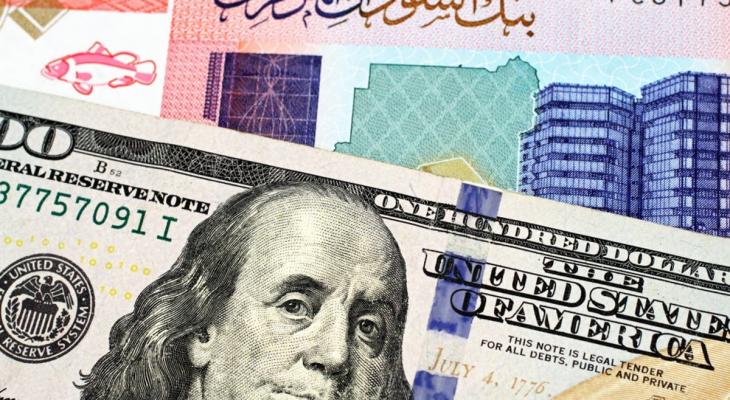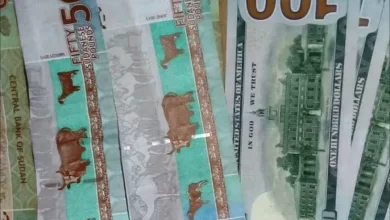Expectations of Continued Deterioration of Sudanese Pound

Sudan Events – Nahid Oshi
Foreign currency prices have witnessed a significant jump against the Sudanese pound, which fell to low levels.
The price of the dollar recorded about 1,550 pounds for sale, while the purchase price reached approximately 1,540 pounds
On Saturday, the Saudi riyal recorded about 410.66 pounds, while the Emirati dirham continued to rise to 419.61 pounds. The Qatari riyal reached 421.91 pounds, while the Omani riyal jumped to 4052.63 pounds. The Egyptian pound recorded 33 Sudanese pounds.
Economic experts expected that foreign currencies would continue to rise against the Sudanese pound unless the war was ended.
The economic expert, Dr. Alallah Abdul Razzaq Alallah that the dollar’s trading price should reach 2 thousand pounds within a short period due to the decline in production operations and their cessation in some states, especially those where battles are taking place. He confirmed in his interview with “Sudan Events” that the deterioration of the pound is one of the outcomes of the war, as it led to the deterioration of significant real production sectors, especially the industrial sector, in which more than 70% of its factories and assets were disrupted, in addition to the disruption of agricultural sector projects, which prompted compensation for the lack of local production by importing necessary and basic goods for citizens from abroad, which caused an increase in the demand for foreign exchange to meet the necessary import needs for some goods
He described the deterioration in the value of the Sudanese currency as catastrophic. He said that it is an indication that the Sudanese economy has entered the stage of economic collapse, the features of which have begun to become clearly evident during this period.
Alallah called on the Central Bank of Sudan to intervene and take a package of procedures and measures to address the deterioration of the pound by controlling the size of the monetary mass, in addition to taking other unconventional measures in managing monetary policy.



